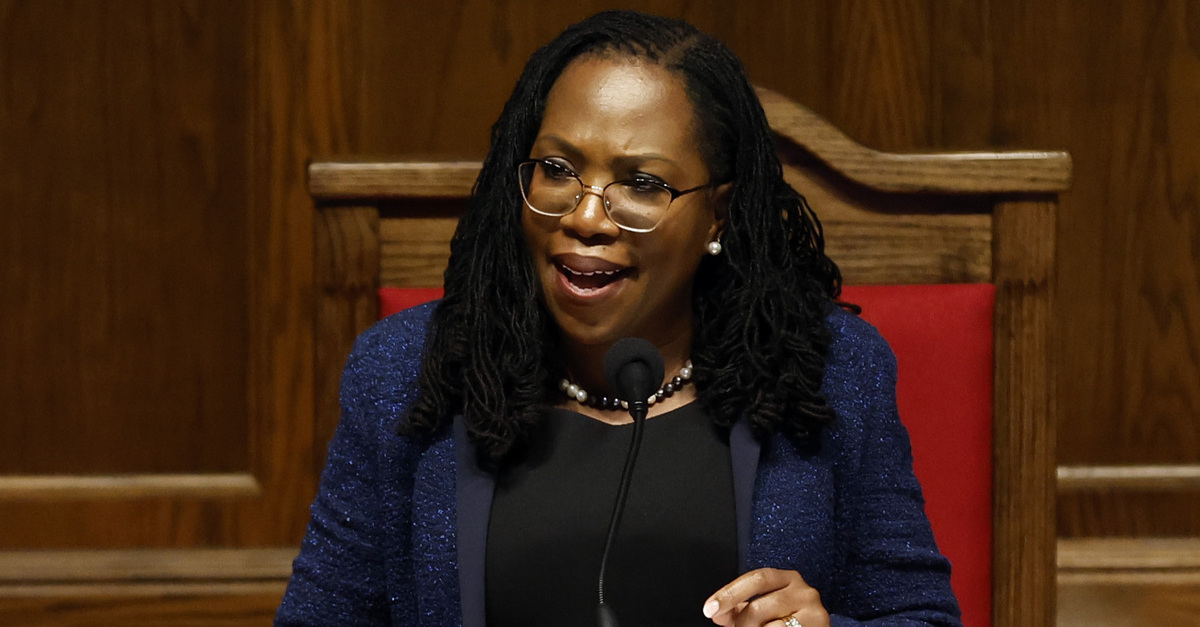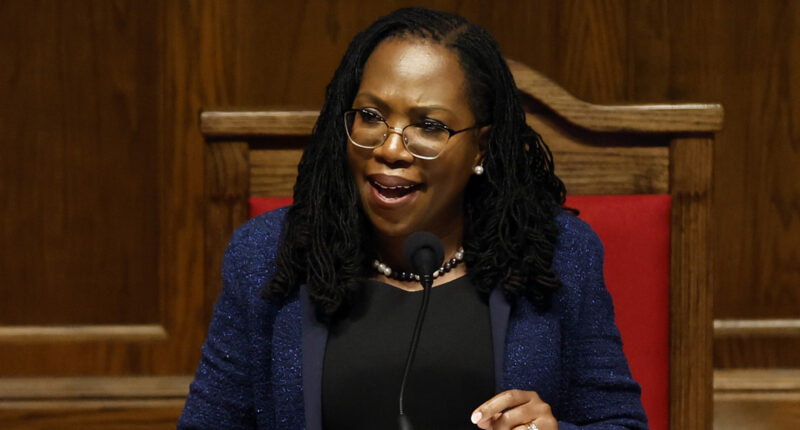
Supreme Court Justice Ketanji Brown Jackson, the first Black woman to serve on the nation’s highest court, delivered a speech during the 60th Commemoration of the 16th Street Baptist Church bombing in Birmingham, Alabama. The event took place on Friday, September 15, 2023, marking a significant moment in history.
The U.S. Supreme Court recently made a decision regarding a case involving a Black adult entertainer from Texas. The entertainer, Chanel Nicholson, claimed that she and other Black women faced racial discrimination at two strip clubs in the Houston area. The clubs were reported to have enforced quotas that restricted the number of Black performers working simultaneously.
In a notable 7-2 vote, the justices of the Supreme Court rejected Nicholson’s petition. The reasoning behind this decision was based on the statute of limitations applicable to her case. It was established that the four-year statute of limitations commenced in 2014 when the initial incident of alleged discrimination occurred, not in 2021, which was the year of the last reported discriminatory act. Consequently, Nicholson’s claim was considered time-barred.
The majority’s decision leaves in place a ruling from the U.S. Court of Appeals for the 5th Circuit which held that the later instances of alleged discrimination — not allowing Nicholson to work “if too many other Black performers were already present” at the clubs — were merely the “continued effects of prior instances of race-based exclusion and thus were not independently actionable.”
Justice Ketanji Brown Jackson penned a dissent — joined by Justice Sonia Sotomayor — in which she scolded the appellate court as well as her colleagues in the majority for allegedly ignoring unambiguous precedent regarding actionable cases of race discrimination in employment law.
“That holding flouts this Court’s clear precedents. We have long held that ‘each discrete discriminatory act starts a new clock for filing charges alleging that act,’ regardless of whether similar instances of discrimination have occurred in the past,” Jackson wrote. “Because the Fifth Circuit’s contrary ruling was patently erroneous, this Court should have granted Nicholson’s petition and summarily reversed the judgment. I respectfully dissent from the Court’s decision to do otherwise.”
Nicholson in 2021 filed the suit against the clubs Splendor and Cover Girls, both of which were owned and operated by the same individuals. The complaint alleged it was “well-known” that both clubs were instructed to “severely limit the total number of Black Dancers on their respective premises” at the direction of upper management.
She claimed that she was turned away from the clubs about three times per week “due to her race.”
According to the complaint, in November 2017, Nicholson said she attempted to work a shift at Cover Girls, but was “told by a manager that she could not perform because there were already ‘too many black girls’ in the club.” After a hiatus from dancing, she attempted to return to Splendor in August 2021 — while her contract with the club was still in effect — but a manager allegedly refused her entry, telling her they were “not taking any more black girls.”
The lower courts held that because Nicholson began being discriminated against when she began working at the clubs in 2014, and was denied access to the clubs for the same “discriminatory reason” in 2021, the later discrimination was not actionable because “nothing had changed.”
The 5th Circuit wrote that Nicholson’s “denial of access” to the club “on account of her race” in 2021 was “merely a continued effect of the first alleged discriminatory act that took place in 2014.”
Jackson, on the other hand, asserted that both instances of racial discrimination should be treated independent of previous discriminatory acts.
From the dissent:
The fact that Nicholson allegedly suffered similar acts of race discrimination in the past has no bearing on whether those two claims can proceed. As this Court has made abundantly clear, “the existence of past acts and the employee’s prior knowledge of their occurrence … does not bar employees from filing claims about related discrete acts so long as the acts are independently discriminatory.” Rather, “each discrete discriminatory act starts a new clock for filing charges alleging that act.”
That last point bears repeating plainly, in light of the Fifth Circuit’s obvious confusion: If the discrete act that is the subject of the plaintiff ’s discrimination complaint is itself discriminatory, and if it allegedly occurred within the statute of limitations period, then that discrimination claim is timely — full stop.”
The court’s decision, Jackson writes, effectively “inoculates” the clubs and their owners from recent discriminatory conduct based on their own “sustained discriminatory motivation.”












